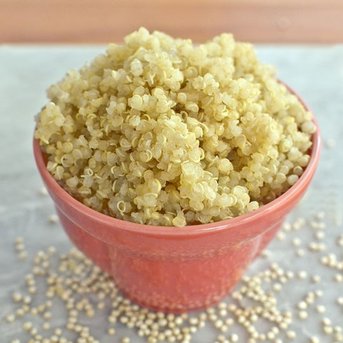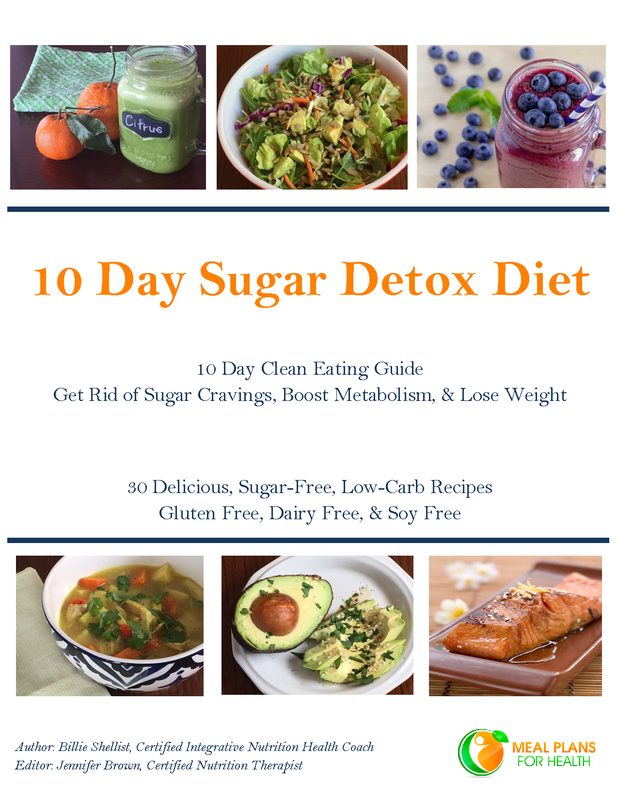 As many of you know, Jennifer and I are not fans of "No Carb Diets" such as Traditional Atkins or Strict Paleo. While cutting your overall carb intake is one of the most popular ways to cut calories and lose weight - this approach will only work in the short term before metabolic imbalances start to derail your goals and halt your weight loss progress. The result of these imbalances are increased cravings for carbs and sugar, increased fat storage, and decreased ability to build strong muscles - when your body stays in this zone you get what is called weight loss resistance. We see this often with people who have spent their whole life "dieting" and following the eat less, exercise more strategy. They are eating low fat and low carb and exercising 5 days a week but still not seeing results on the scale. Does this sound familiar? It did to me, in fact I was one of these people and over time I found that it was harder and harder to lose weight until I converted to a whole food based, anti-inflammatory diet that helped to balance my hormones and metabolism naturally. When you achieve metabolic balance (hormonal balance) by eating whole foods in the right amounts at the right times of the day, including carbs, your cravings will disappear, you will start to burn fat, increase muscle, and consistently sleep soundly. Sound amazing?! One of them most important pieces of an anti-inflammatory, hormone-balancing diet is nutrient dense, fiber based carbohydrates. This week's What's That?! Wednesday post will help you understand which carbs fall into that category and how to incorporate them into your diet. Carbohydrates: Fructose Rich vs. Fiber Rich A moderate carbohydrate diet focused on nutrient-dense foods rich in vitamins and fiber is what we typically advocate for most of our clients with some exceptions.** The type of carbohydrates we eat is key in reversing inflammation, regulating blood sugar, keeping your hormones in balance, and supporting a healthy digestion - all of which you need in balance in order to lose weight and maintain it without having to constantly resist strong cravings for sweets and carbs. Eating the right type of carbs also turns off your "fat storage hormones" like insulin and cortisol to help you burn fat and use carbs for energy for your muscles and brain- the exact combination of what you need to lose weight. But not all carbs are created equal - so which carbs are best? Check it out...its long, but packed with awesome information and free recipes. "Friendly/Good" Carbs (Fiber Rich): The most important thing to understand is that carbs are made up of fructose and/or fiber. Fiber is the part of the carb that we cannot digest and therefore it helps us to lose weight, remove toxins, improve regularity and support the immune system. Fiber filled carbohydrates are also called complex carbs or as we like to call them "friendly carbs/good carbs". Its important to understand, there are 3 types of fiber - soluble, insoluble, or resistant fiber.
"Bad Carbs" (Fructose Rich): Fructose is a simple carb that is processed by the liver - too much fructose and the liver has to work overtime. When the liver is overtaxed, insulin gets releases to help clean up the blood glucose and as we know, insulin is a fat storage hormone. So instead of sending glucose to your muscles for energy, increased insulin sends it to your fat for storage. This leads you to gain weight, feel tired and fatigued (ever experience an energy crash after consuming an indulgent dessert?), and mentally sluggish. To make matters worse, your body responds to this by increasing its cravings for these same, fructose-rich foods, perpetuating the cycle of food addiction, overeating, and obesity. Worst Choices for "Fructose Rich Carbs" : High Fructose Corn Syrup, Sugar, Processed White and Wheat Flours, Processed Corn, Pre-Packaged "Low-Fat"/"Diet Foods" (they replace carbs with sugar), Pre-Packaged Snacks and Treats, Baked Goods, and Cereals. These types of carbs give carbs a bad name and should be avoided completely or highly limited. Best Choices "Fructose Rich Carbs": Berries (lowest sugar), Apples, Bananas, Grapefruit, Pomegranates, Kiwi, Peaches, Pears, Plums, Mango, Pineapple, Melons, and Oranges. If you are trying to lose weight keep these fruits down to 1/4 cup/day and pair them with some greens. Focusing on the right carbs is one of the most important changes to your diet you can make. If you feel overwhelmed, start by changing ONE meal - breakfast - the most important meal of the day! Swap your toast, bagel, croissant, muffin, pastry, granola or cereal for a Simple Green Smoothie and use an unripe banana to help ward off hunger and cravings and keep your energy up. Need a Little More Guidance? We offer a few functional nutrition coaching services to help you boost your nutrition, reverse food addiction, and help balance your hormones so that you can lose weight without cravings and without sacrificing taste! Check out our Metabolic Recovery Program. Or to schedule a free 15 minute phone consultation, email us here, and we will spend 15-20 minutes on the phone with you and give you a couple tips to get you started in the right direction! "Friendly Carbohydrate Recipes": Kale-Apple-Carrot Slaw with Apple Cider Vinaigrette Quinoa-Zucchini Patties with Tzatziki Sauce Sweet Potato Chips Asparagus & Shallot Tossed Quinoa Sweet Potato & Quinoa Patties with Creamy Thai Vinaigrette Kale Refresh Salad with Tahini Dressing Baby Red Potato & Green Bean Salad with Lemon-Dill Dressing We are big fans of friendly carbs (as you can tell) and offer many more recipes on our blog and even more recipes inside our Monthly Meal Planning Membership. If you are looking to balance carbs, lose weight, and cook some delicious food in the process - check out our Anti-Inflammatory Meal Plan. Adios faithful readers. In good health, Billie & Jen **Exceptions may include women who are pregnant or breast feeding, high-intensity athletes, and those with certain fungal infections or chronic candida. Another exception would be those on short term (2-4 week) detox or elimination diets. You may also like our new 10 Day Sugar Detox eBook. A great 10 day eating plan packed with friendly carbohydrates, clean proteins, and healthy fats.
0 Comments
Leave a Reply. |
Billie Shellist, FDN-P
I practice functional nutrition, an approach that allows me to look at your entire health history and help you find the "root causes" of your chronic health complaints. This cuts out the trial and error process and helps you get real symptom relief and resolution! Food is medicine and knowledge is power -I hope you enjoy my anti-inflammatory recipes which are gluten, dairy, and soy free as well as very low grain and sugar. If you'd like to heal from the root cause(s) of your chronic symptoms, try starting with a complimentary 15-minute consultation. Click here to request your free session. |


